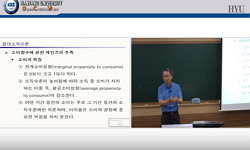본 연구는 우리나라의 1990-2014년 시계열 자료를 활용하여 물 효율성, 경제성장, 전력생산 및 이산화탄소 배출 간의 장·단기 인과관계를 실증적 으로 분석하였다. 기존 연구들이 경제성장, 이...
http://chineseinput.net/에서 pinyin(병음)방식으로 중국어를 변환할 수 있습니다.
변환된 중국어를 복사하여 사용하시면 됩니다.
- 中文 을 입력하시려면 zhongwen을 입력하시고 space를누르시면됩니다.
- 北京 을 입력하시려면 beijing을 입력하시고 space를 누르시면 됩니다.

Analysis of the relationship among water-efficiency in the non-agricultural sector, economic growth, electricity generation, and CO2 emission – evidence from Korea -
한글로보기https://www.riss.kr/link?id=A106112674
- 저자
- 발행기관
- 학술지명
- 권호사항
-
발행연도
2018
-
작성언어
Korean
-
주제어
Water-Efficiency ; Electricity generation ; CO2 Emissions ; Economic growth ; VECM ; 물 효율성 ; 전력생산 ; 이산화탄소 배출 ; 경제성장 ; 벡터오차수정모형
-
등재정보
KCI등재
-
자료형태
학술저널
-
수록면
1229-1235(7쪽)
- 제공처
-
중단사유
※ 코리아스칼라의 원문 서비스 중단에 따라, 학술지명을 클릭하여 [복사/대출] 서비스를 이용해 주시기 바랍니다.
- 소장기관
-
0
상세조회 -
0
다운로드
부가정보
국문 초록 (Abstract)
본 연구는 우리나라의 1990-2014년 시계열 자료를 활용하여 물 효율성, 경제성장, 전력생산 및 이산화탄소 배출 간의 장·단기 인과관계를 실증적 으로 분석하였다. 기존 연구들이 경제성장, 이산화탄소 배출 및 전력 및 에너지에 국한되어 분석을 한 반면 본 연구는 기존 변수들과 더불어 물 효율성과의 관계를 설명하였다는 기여를 가지고 있다. 실증분석결과를 살펴보면, 네 변수들은 단기조정관계를 통해 장기적으로 균형상태에 도달한다는 것과 변수들 간의 인과관계에서 이산화탄소 배출과 경제성장은 물 효율성의 원인이 되고 이산화탄소 배출과 경제성장 및 물 효율성은 전력생산의 원인이 된다는 사실을 발견하였다. 또한 물 효율성에 대한 장기 영향계수 추정결과를 통해 전력생산의 증가와 경제성장 및 이산화탄소 배출의 감소는 물 효율성을 증가시키며, 일정 수준 이상의 경제성장은 물 효율성의 증가속도를 감소시킨다는 경제성장과 물 효율성의 역U자형 관계를 확인하였다.
다국어 초록 (Multilingual Abstract)
We have examined dynamic relationships among water-efficiency, economic growth, electricity generation, and CO2 emissions in Korea using various time-series analysis methods for 1990-2014. While previous studies have been limited to economic growth, C...
We have examined dynamic relationships among water-efficiency, economic growth, electricity generation, and CO2 emissions in Korea using various time-series analysis methods for 1990-2014. While previous studies have been limited to economic growth, CO2 emissions, and electricity generation, this study contributed to explain the relationship between existing variables and water-efficiency. We find that the four variables reach a balanced state in the long run through short-term adjustment, CO2 emissions and economic growth are responsible for water efficiency, and that CO2 emissions, economic growth and water efficiency are the causes of electricity generation. The long-term impact coefficient estimates on water-efficiency show that the increase in electricity generation and the decrease in CO2 emissions increase water-efficiency. Although economic growth has increased water-efficiency, moreover, we have identified an inverted U-shaped relationship between economic growth and water-efficiency, which suggests that economic growth above a certain level reduces the rate of increase in water-efficiency.
목차 (Table of Contents)
- Abstract
- 요 지
- 1. 서 론
- 2. 분석방법
- 3. 실증분석
- Abstract
- 요 지
- 1. 서 론
- 2. 분석방법
- 3. 실증분석
- 3.1 자료
- 3.2 단위근과 공적분 검정
- 3.3 장·단기 인과 및 영향관계 분석
- 4. 결론 및 정책적 시사점
- 감사의 글
- References
동일학술지(권/호) 다른 논문
-
합성개구레이더 인공위성 영상을 활용한 중소규모 하천에서의 유량 추정
- 한국수자원학회
- 서민지
- 2018
- KCI등재
-
한계 침투량을 고려한 강우와 지하수위의 상관관계를 이용한 주 단위 지하수자원 관리 취약시기 평가 방법 개발
- 한국수자원학회
- 이재범
- 2018
- KCI등재
-
2차원 수치모형을 이용한 남한강과 섬강 합류부 구간의 흐름 및 하상변동 해석
- 한국수자원학회
- 박문형
- 2018
- KCI등재
-
딥러닝 기반 LSTM 모형을 이용한 감조하천 수위 예측
- 한국수자원학회
- 정성호
- 2018
- KCI등재





 코리아스칼라
코리아스칼라







